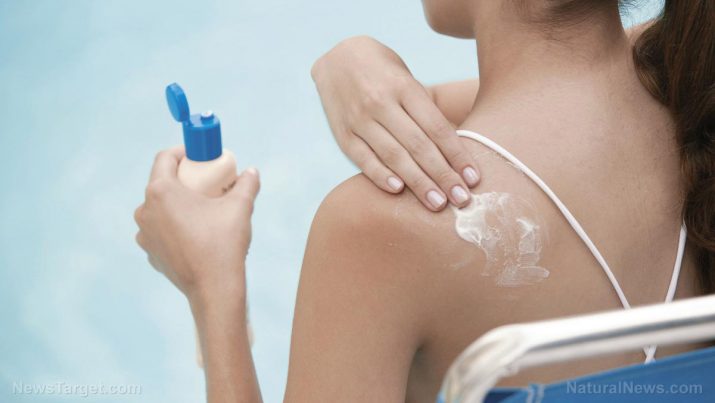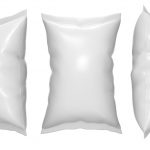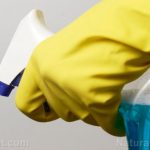
Extremely toxic sunscreen ingredients you want to avoid
Tuesday, July 18, 2017 by Frances Bloomfield
http://www.products.news/2017-07-18-extremely-toxic-sunscreen-ingredients-you-want-to-avoid.html

With summer in full swing, more people are bringing out the staples of the season: grills, pool toys, sunglasses, and of course, sunscreen. The last item is especially important since so many of us rely on sunscreen to protect ourselves from excessive UV radiation. In theory, slathering on a bit of sunscreen should do you a lot of good. But in truth, we’re not doing ourselves any favors by buying sunscreen based solely on its SPF number. A lot of popular sunscreens are loaded with unsafe ingredients that can compromise your health and even promote skin cancer.
Here are just a few of those toxic chemical ingredients to watch for:
- Avobenzone – This is one of the most common sunscreen ingredients, as well as one of the most dangerous. When avobenzone comes into contact with chlorinated water — the kind of water in your pool — it produces acetyl benzenes and phenols, two particularly toxic chemicals linked to infertility, immune system deterioration, and cancer.(Related: Science SHOCK: Chlorine in swimming pools transforms sunscreen into cancer-causing toxic chemical right on your skin.)
- Oxybenzone – The Environmental Working Group (EWG) has ranked oxybenzone as one of the most toxic cosmetic ingredients, and for a good reason. Oxybenzone is a hormone disruptor that has become associated with endometriosis, a painful disorder wherein tissue normally lining the inside of the uterus grows outside it. The EWG has also given oxybenzone a high score when it comes to allergic reactions, so exposure to this ingredient can bring about severe allergies as well.
- Octinoxate – Also known as octylmethoxycinnamate, octinoxate is supposed to protect the skin from sun-induced aging. However, octinoxate may actually do the opposite and encourage premature aging. This is on top of its negative effects on the reproductive system and thyroid gland. Not even animals are safe from the hormone-altering effects of this chemical as it remains active in water, making it easier for animals to come into contact with octinoxate.
- Homosalate – This ingredient not only helps sunscreen penetrate the skin, but it stays there too. Homosalate bioaccumulates and isn’t as quickly expelled from the body as other toxins. Once inside you, homosalate disrupts estrogen, androgen, and progesterone levels.
- Retinyl palmitate – While not exactly a toxic ingredient, retinyl palmitate (or vitamin A palmitate, as it’s sometimes listed) becomes dangerous under sunlight. Being exposed to ultraviolet rays will cause retinyl palmitate to break down and produce free radicals. The more free radicals there are in your body, the greater your risk of developing skin cancer.
- Parabens – These are synthetic preservatives intended to inhibit bacterial and microbial growth in personal care products. Along with your bacteria-free sunscreen, you also end up getting sunscreen with an ingredient that causes allergic reactions, neurotoxicity, and hormonal disruption. Parabens are typically prefaced by chemical-sounding names like methyl-, propyl-, butyl-, and ethyl-, which are indicative of their alkyl groups.
- Synthetic fragrances – They may add an aromatic touch to sunscreen, but don’t be fooled. Synthetic fragrances have been linked to an assortment of detrimental health conditions like nausea, headache, asthma, and cancer.
Don’t let high SPF numbers lull you into a false sense of security when under the sun. Those numbers mean nothing when every other ingredient in your sunscreen is harming you. If and when you need to protect yourself from the sun, it’s best to go natural. Cover up with a sun hat and a kaftan, pick the least sunny part of the day to go out, and invest in safe sun protection items.
The Health Ranger Select Summer Body Butter line offers clean, natural skin creams for summer. These mineral-rich body butters contain none of the toxic ingredients mentioned earlier. Instead, they’re made with all-natural ingredients that pull off the double duty of defending your skin from UVA and UVB radiation while simultaneously nourishing and moisturizing your body.
Sources include:
Tagged Under: Tags: chemical sunscreen, chemicals, sunscreen, sunscreen ingredients, toxic chemicals





